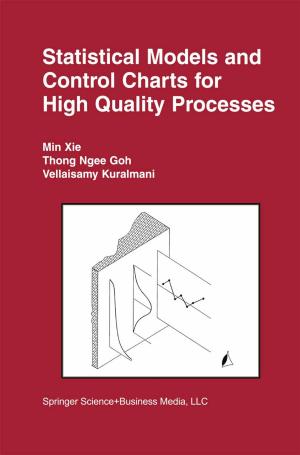Which variables of governance can affect the risk of default of family businesses? A cross-country comparison between United Kingdom and Italy
The value of variables of governance and the default index
Business & Finance, Management & Leadership, Operations Research, Accounting, Management, Marketing & Sales, Research| Author: | Olga Maria Stefania Cucaro | ISBN: | 9788822812810 |
| Publisher: | ResearchFreelance | Publication: | August 17, 2017 |
| Imprint: | Language: | English |
| Author: | Olga Maria Stefania Cucaro |
| ISBN: | 9788822812810 |
| Publisher: | ResearchFreelance |
| Publication: | August 17, 2017 |
| Imprint: | |
| Language: | English |
This study examines the association between some governance variables and the risk of default of family and non-family firms. The paper also discusses the nature of family control and the differences to non-family control and their link to firm’s performance. The most relevant indicators utilised by the authors for identifies the probability of default are based on quantitative indicators, but the presence of independent directors or the managements turnover (in particular the change of CEO) are more important for the future life of the firms, especially in the crisis periods. These governance variables are more relevant for the firms that are controlled by founder’s family and in case of succession transition, that is one critical period for the firm. In this study we try to confirm the agency problems in family businesses highlighted by the literature as the relationship between Z-score and the presence of independent directors, the turnover of the directors and the change of CEO. Especially if the latter is also Chairman. We reaffirm in this analysis the necessary distinction between the capital and the company management.
This study examines the association between some governance variables and the risk of default of family and non-family firms. The paper also discusses the nature of family control and the differences to non-family control and their link to firm’s performance. The most relevant indicators utilised by the authors for identifies the probability of default are based on quantitative indicators, but the presence of independent directors or the managements turnover (in particular the change of CEO) are more important for the future life of the firms, especially in the crisis periods. These governance variables are more relevant for the firms that are controlled by founder’s family and in case of succession transition, that is one critical period for the firm. In this study we try to confirm the agency problems in family businesses highlighted by the literature as the relationship between Z-score and the presence of independent directors, the turnover of the directors and the change of CEO. Especially if the latter is also Chairman. We reaffirm in this analysis the necessary distinction between the capital and the company management.















